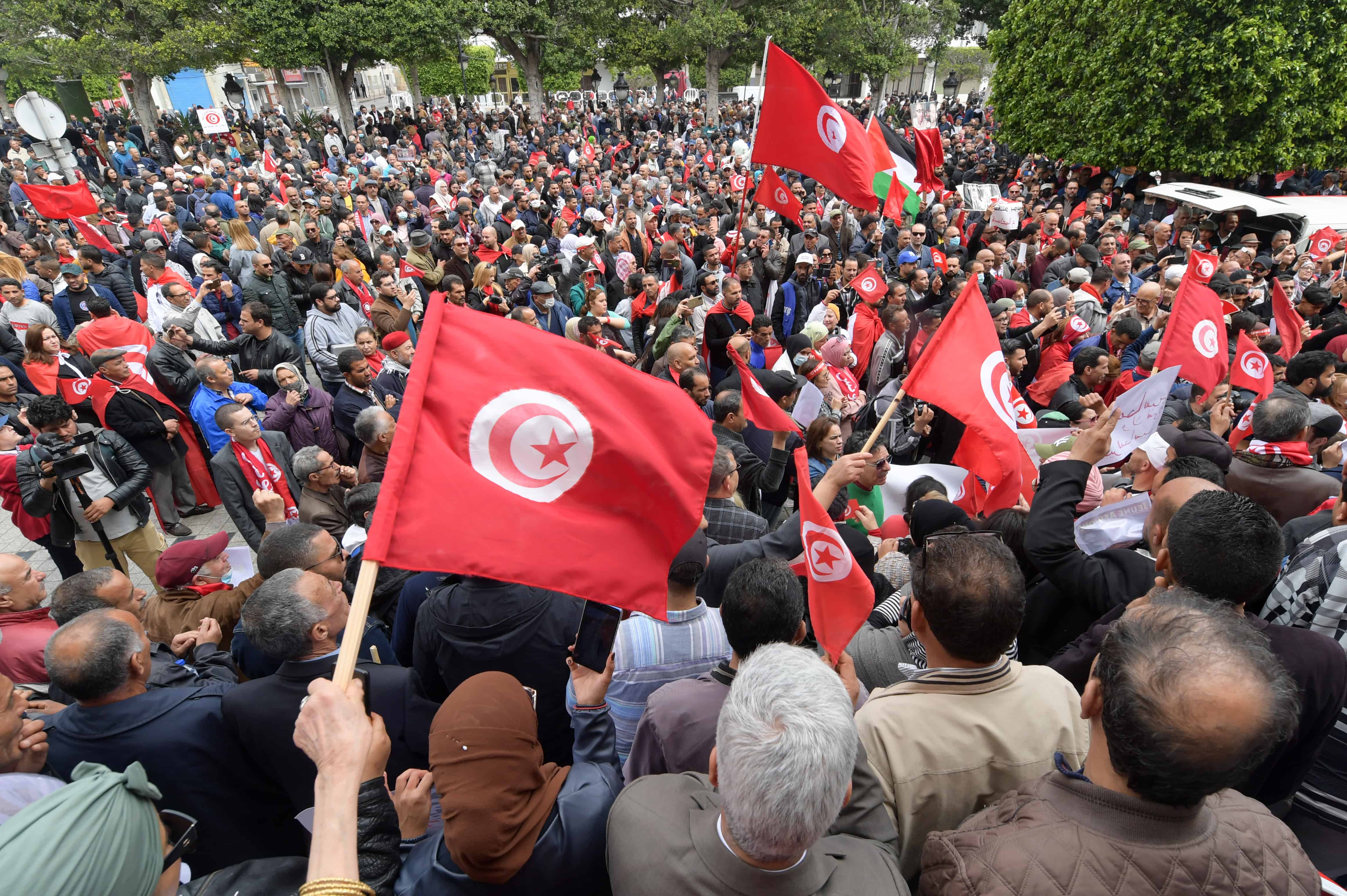Hundreds of Tunisians demonstrated Sunday in a show of support for President Kais Saied and a series of extraordinary measures he took since last July that critics have slammed as a “coup”.
The rallies come as Saied faces mounting criticism over his July 2021 power grab, in which he sacked the government and suspended parliament before moving on to rule by decree.
Demonstrators gathered in the capital’s central Bourguiba Avenue — the epicenter of vast protests that toppled former leader Zine El Abidine Ben Ali in 2011 — in response to a call by a pro-Saied alliance.
They held banners reading “We are all Kais Saied” and demanded the prosecution of “corrupt” politicians, echoing a frequent refrain uttered by the head of state.
Critics have warned that Saied’s moves mark a shift towards autocracy, threatening the only democracy to have emerged from the 2011 Arab Spring uprisings.
In late April, several Tunisian opposition parties announced the formation of a National Salvation Front to “save” the country from the deepening political crisis.
Prominent leftist Ahmed Nejib Chebbi said at the time that the alliance aimed to unite political forces, re-establish constitutional and democratic processes and guarantee freedoms and rights in the country.
Saied in early May announced the launch of a “national dialogue” to help resolve the crisis — but excluded critical opposition groups, including his arch-rivals, the Islamist-inspired Ennahdha party.
In parallel with the political turmoil, Tunisia has been gripped by a dire social and economic crisis, and has sought a loan package from the International Monetary Fund.







